Rothenburg ob der Tauber
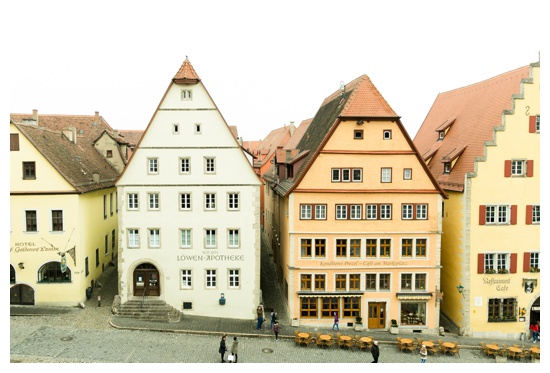 As we walked around I kept wondering to myself, “Is this place REAL?” It looks like something straight out of a book, or a part of the Disneyland theme parks. Trevor laughed at me when I mentioned Disneyland, but I think it is a good description that deserves a little explanation.
As we walked around I kept wondering to myself, “Is this place REAL?” It looks like something straight out of a book, or a part of the Disneyland theme parks. Trevor laughed at me when I mentioned Disneyland, but I think it is a good description that deserves a little explanation.
One of my FAVORITE parts of Disneyland is how much details there is in each theme. Handrails, streetcars, food vendors, even trashcans are all decorated for the specific part of the theme part. Disney is that good.
Well, as much as I *love* Disney, Rothenburg is detail on a entire separate level. The longer I am here,I think all of Europe might be this way. (Little side note, this is the town that inspired Disney animators when making Pinocchio’s village.
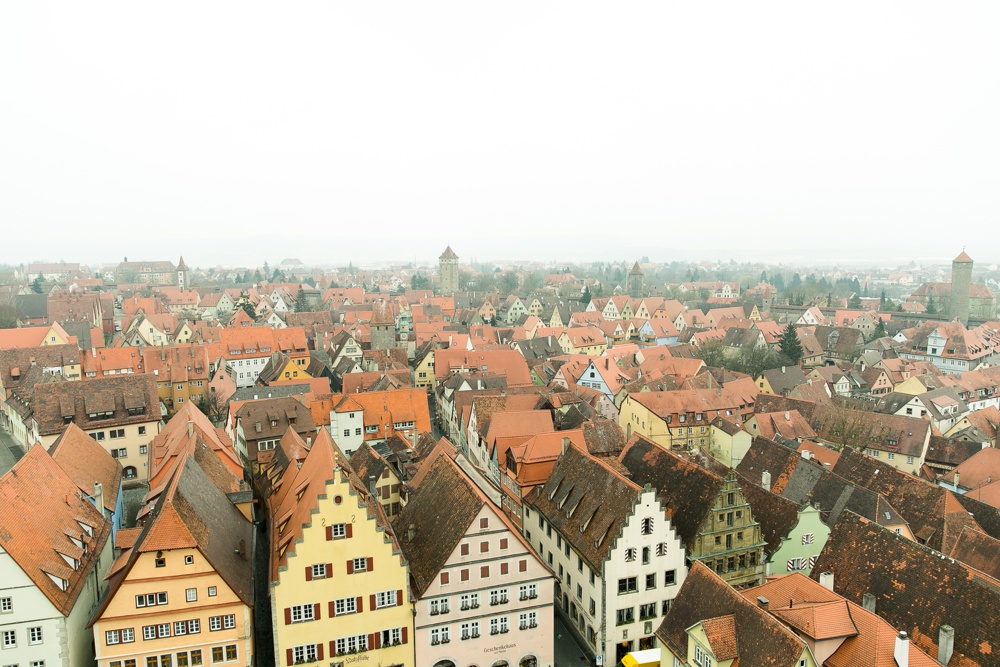
We walked the cobble lined streets of the 13th century town as a light snow came down. The little flakes melted as soon as they touched the ground, but it made for a soft silence around the town. Rothenburg now has become a little famous for its German Christmas shops, quintessential charms, and black forest cuckoo clocks. A little bit of winter made our noses turn red and showed our misty breath in the air, but also made me feel like I was walking through a German Christmas snow globe.
One of the best parts of traveling is seeing places that have seen a time in history that one can only imagine about now. Rothenburg was THE place to be if you lived around 1150 to 1400. It is said to be the best preserved medieval walled town. Once you enter the town gates, the red roof buildings stand elbow to elbow along long winding cobble roads.
We stayed at a bed and breakfast, or “pensions” as they call them here, inside the walled town. When the “new” town hall is from 1681, you get an idea of how old the place really is. I tried to imagine maids in their skirts at the many different water wells, people walking to the large St. Jakob’s Cathedral or in the Market Square trading goods, crafts and animals. What a different world.
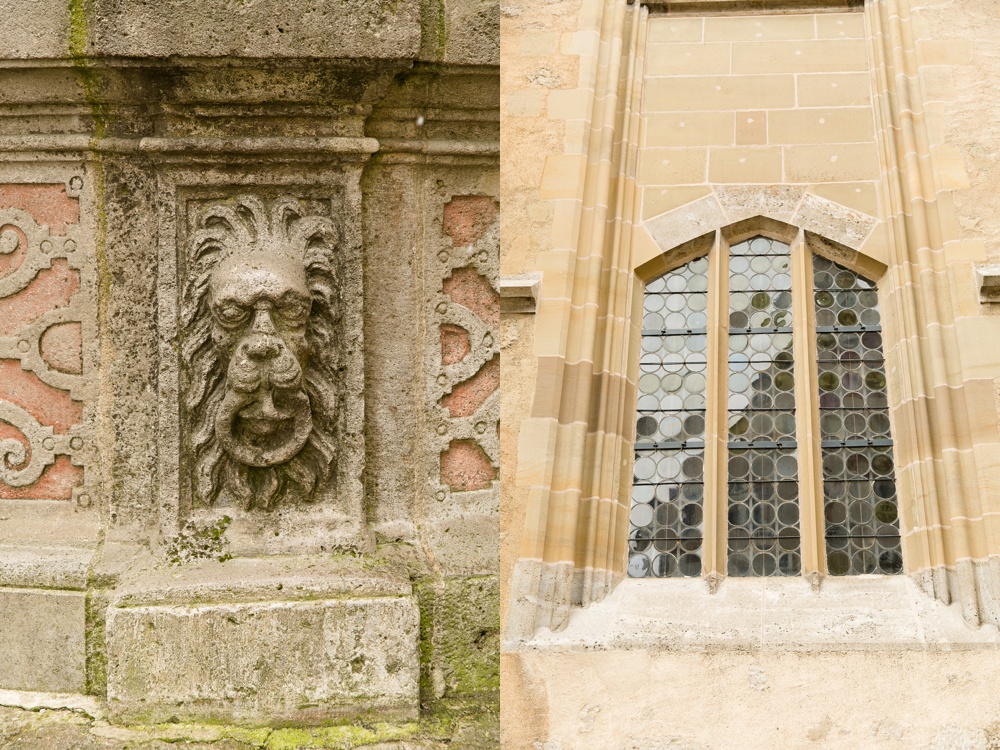
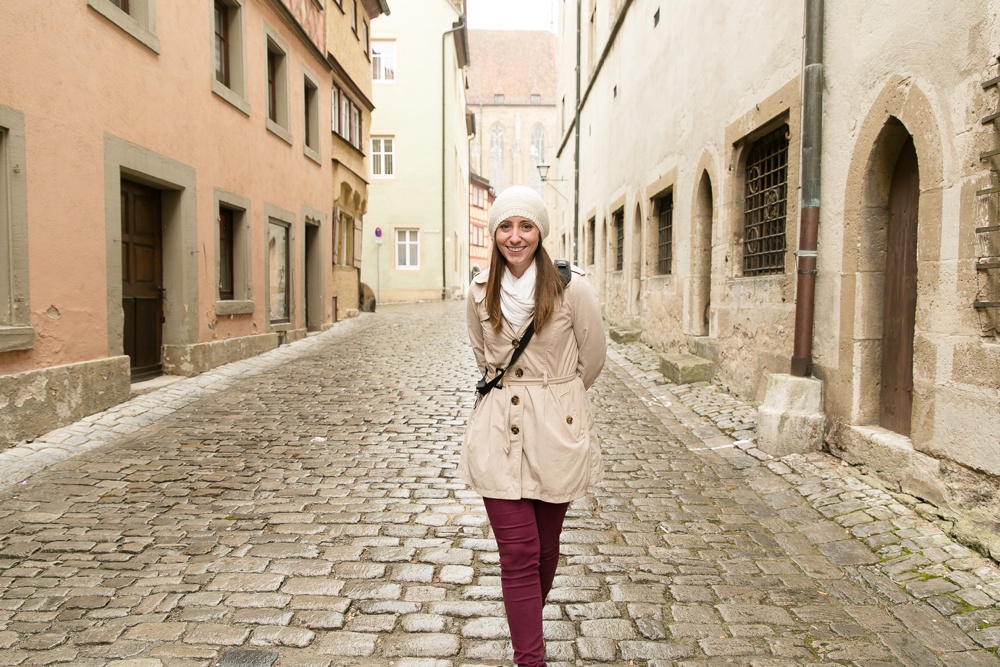
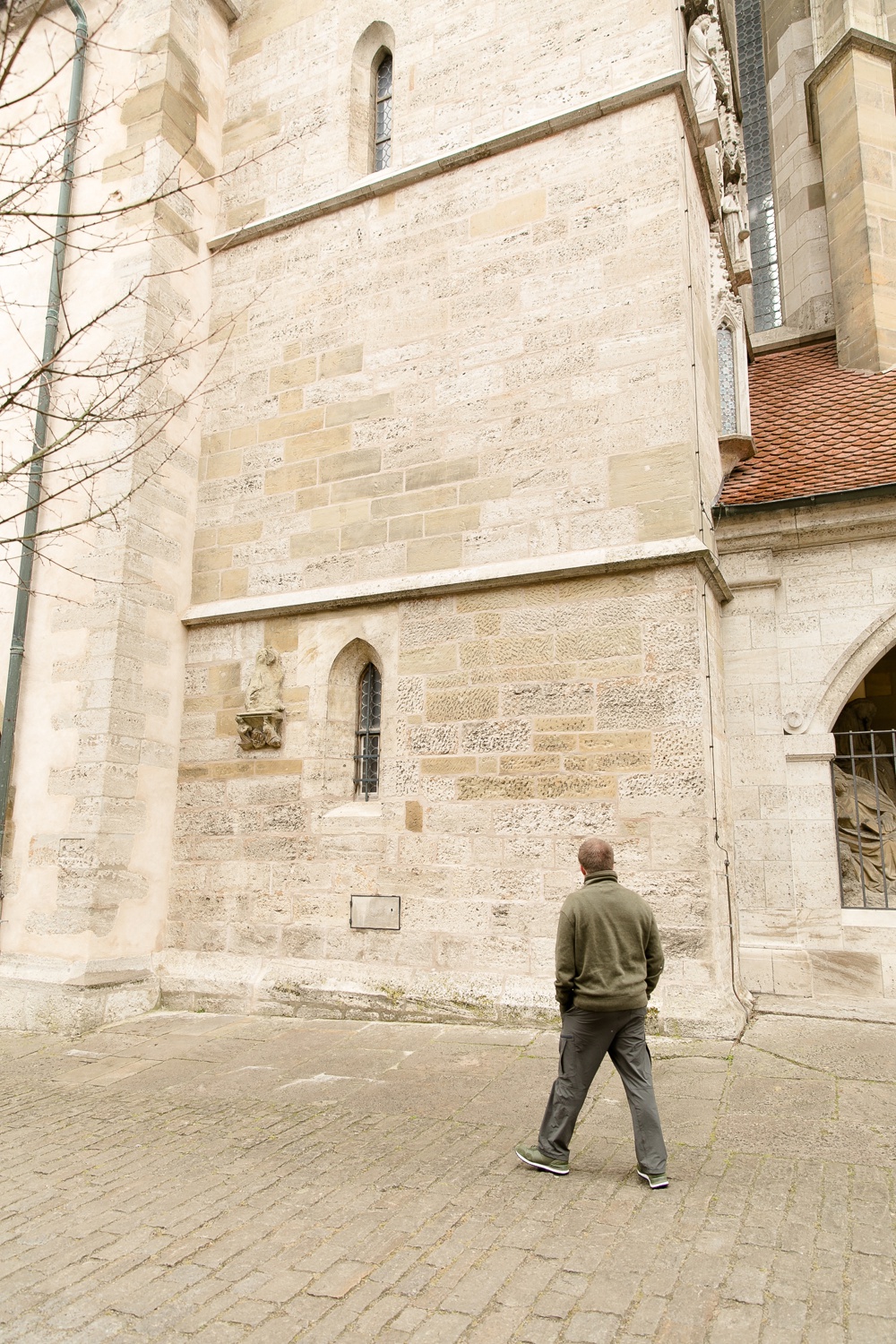
Look at that face. 🙂
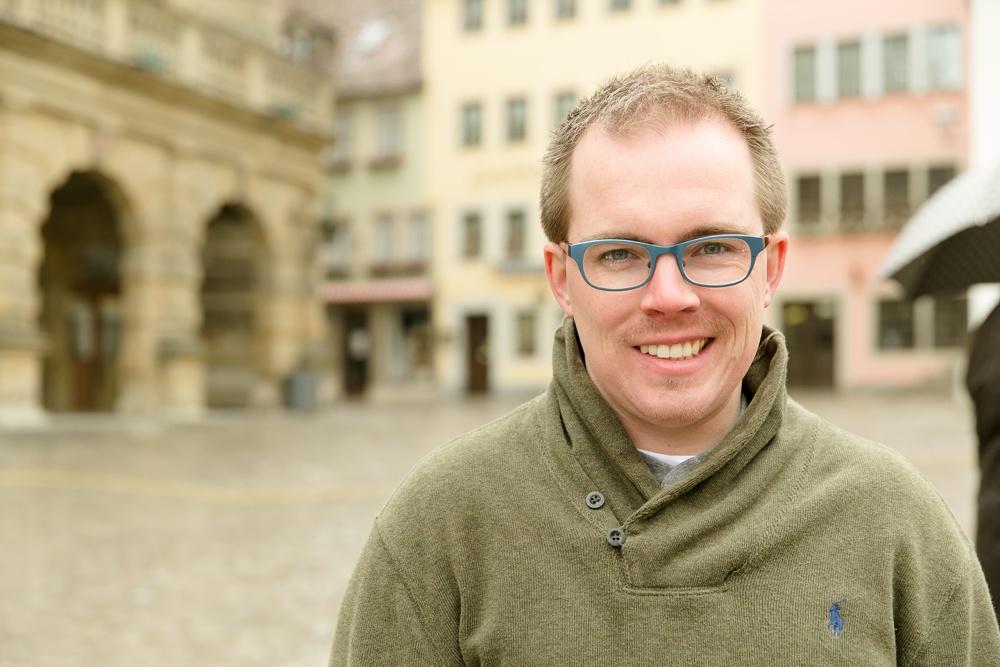
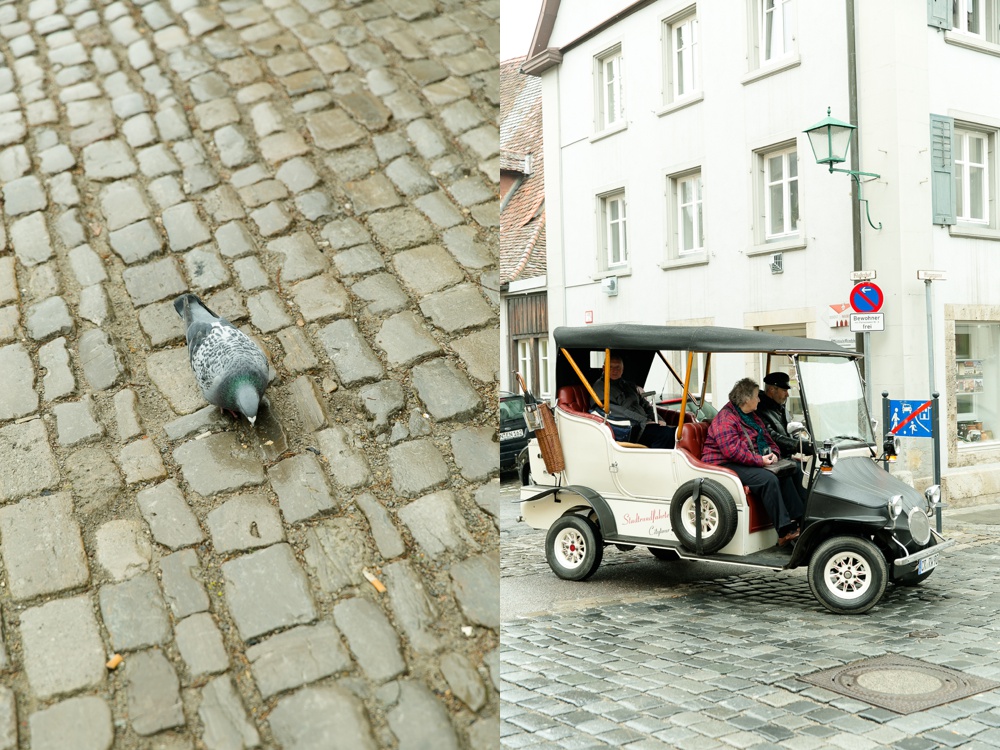
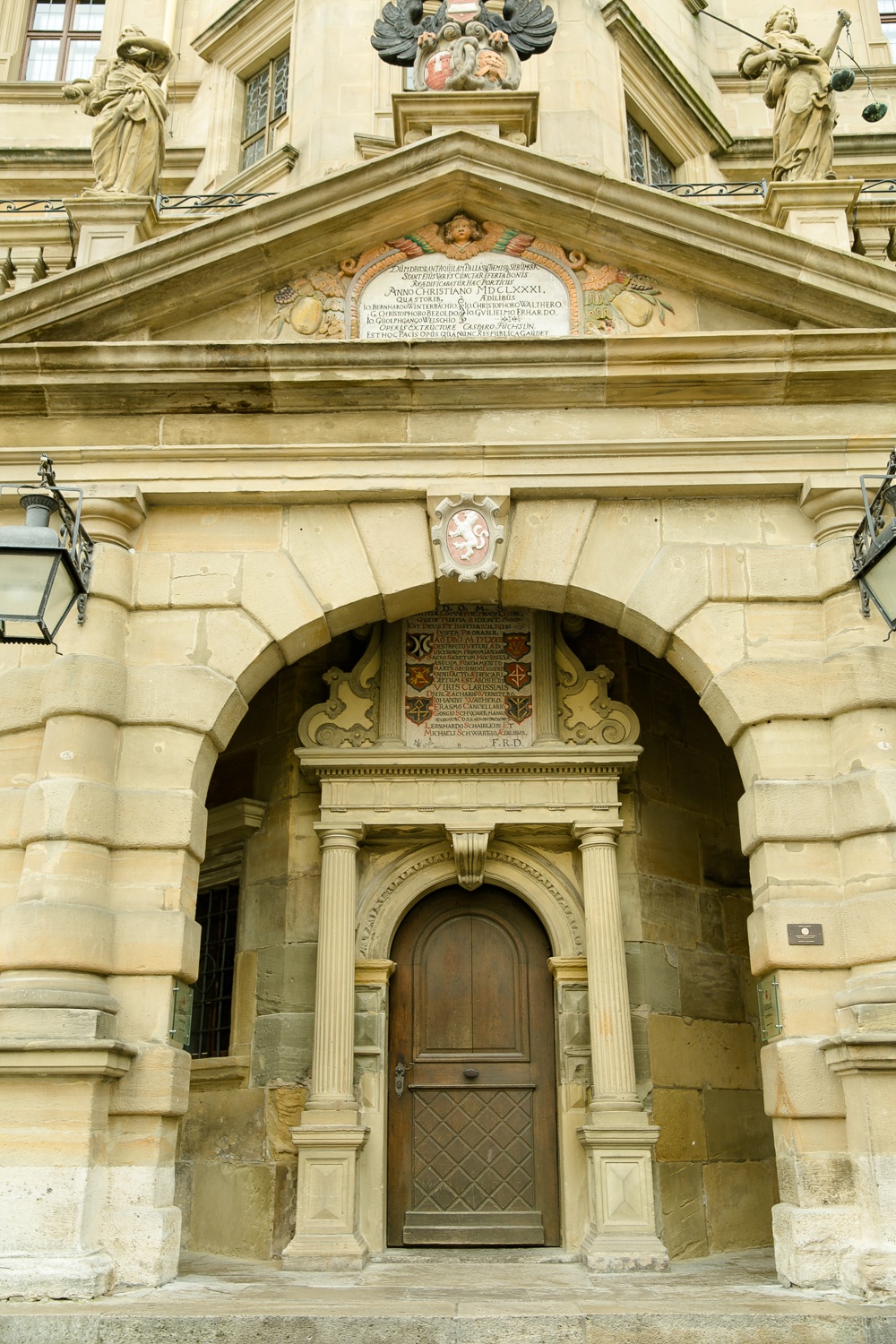
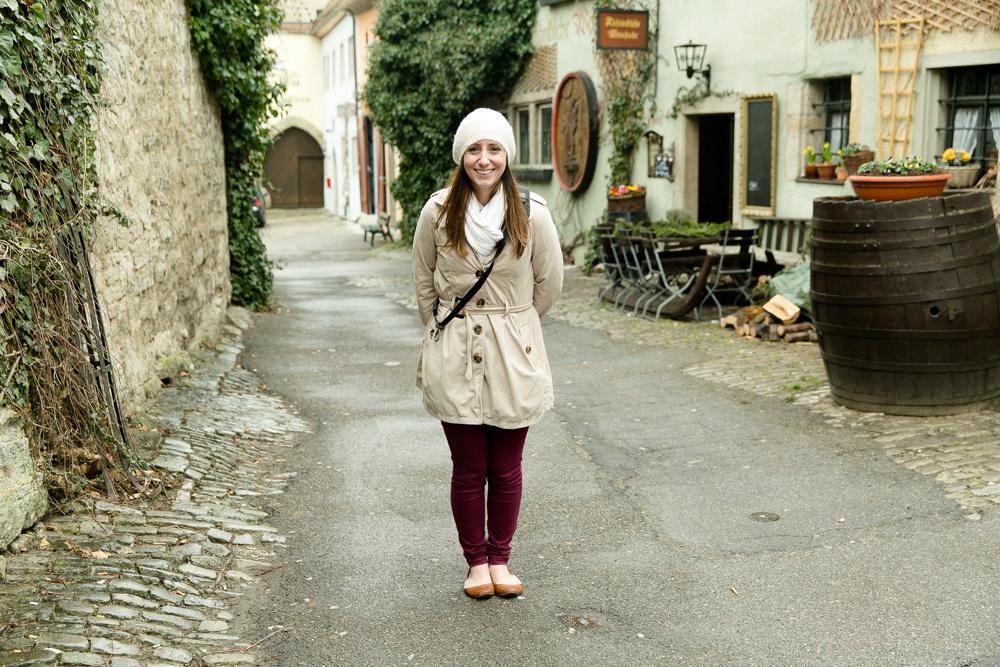
This little garden use to belong to the monks and nuns who were responsible for concocting herbal cures. Peppermint, lavender, rosemary and some poisonous plants are all grown here.
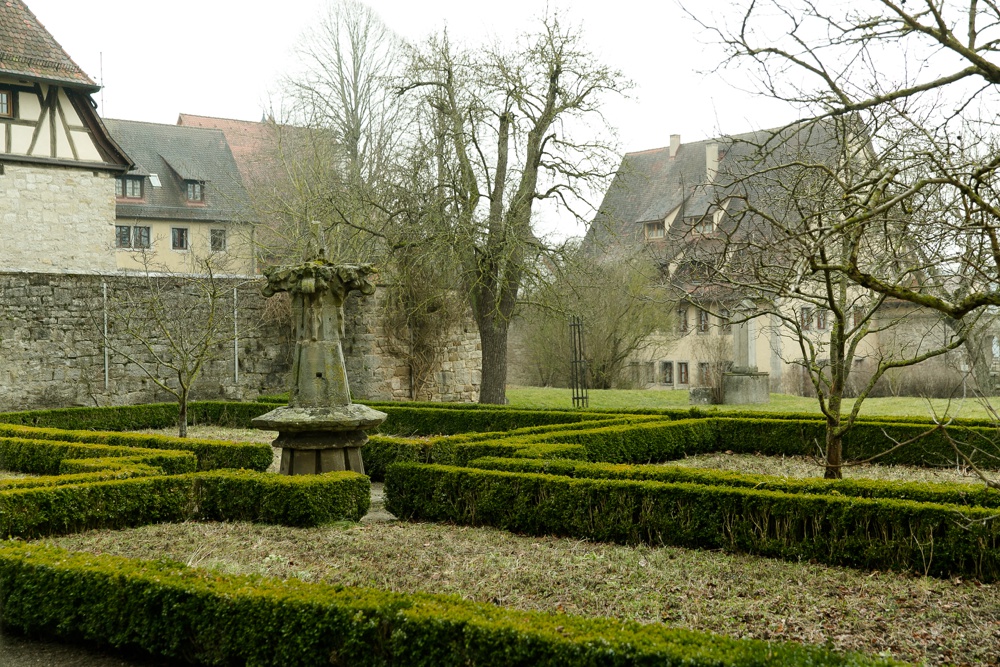
Trevor and I went for a walk outside the city walls to see the view. The walls are beautiful, with archways and keystones for every entrance. If you were late for curfew in the 13th century, you would be locked out of the city gates and have to beg the nearby guards to let you in. They made small doorways in the gates that individuals could pass through, but not an armed attacker.
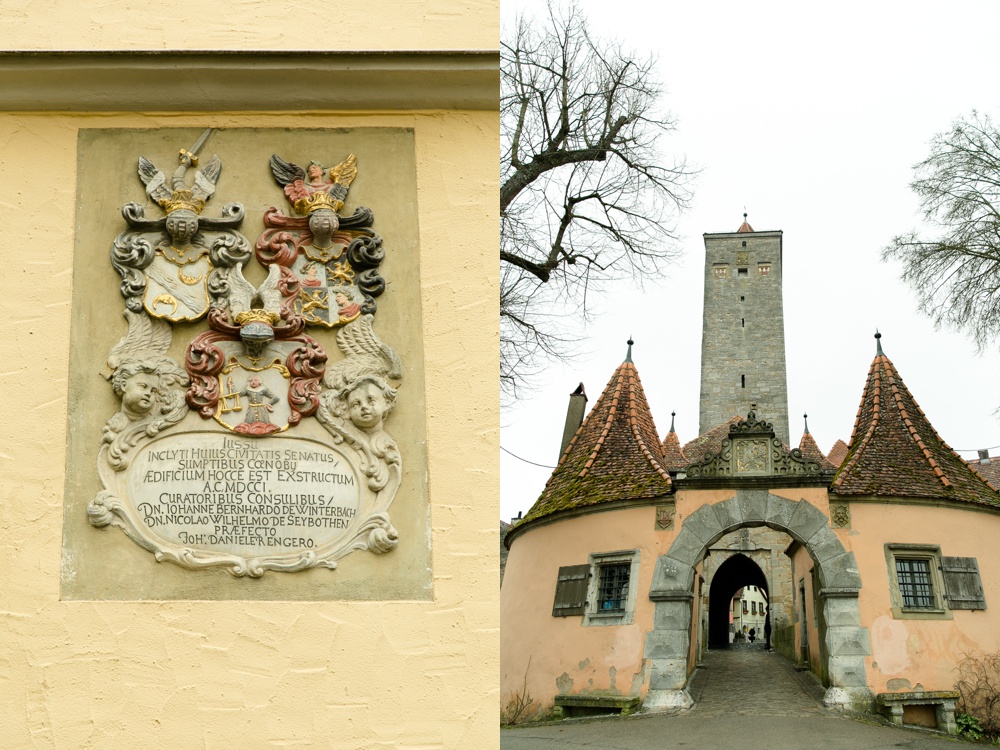
This was the view outside the walls.
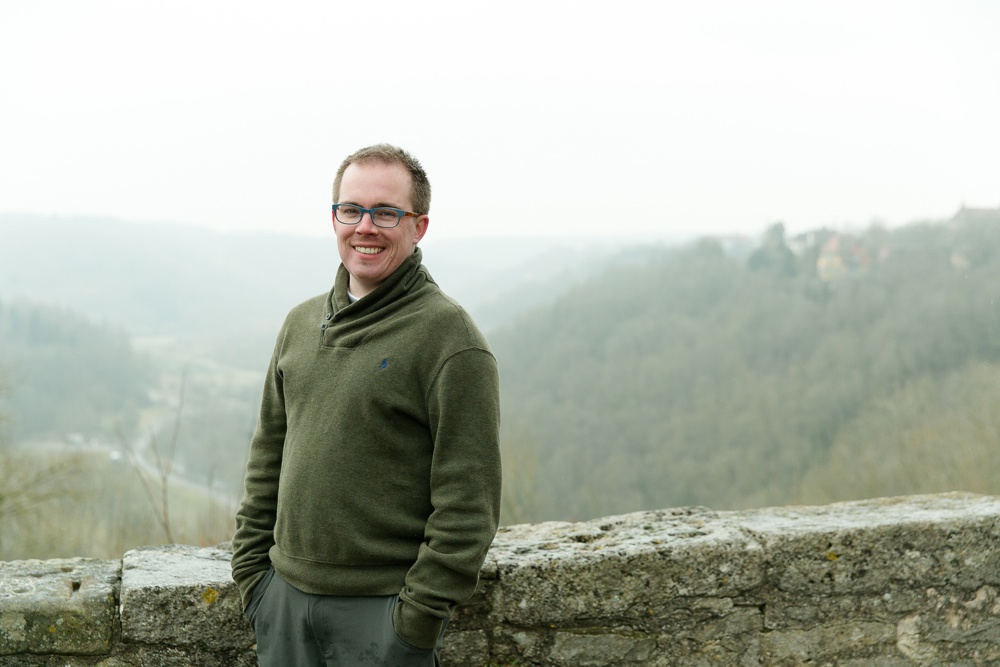
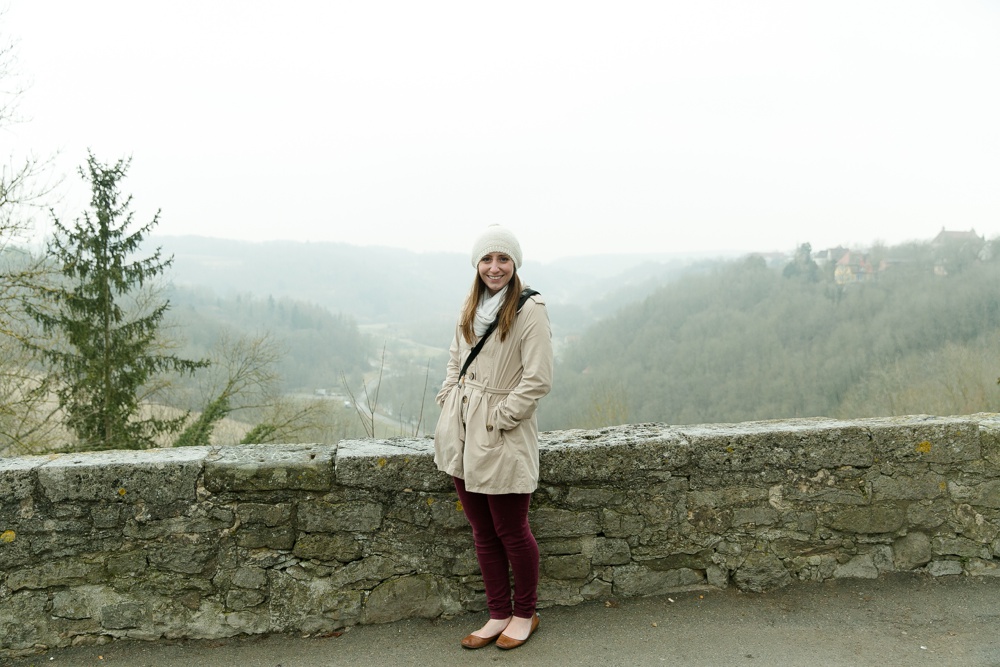
As Rothenburg was an Independent Imperial City, it had its line of reigning powers. With that there was need for a castle for them to live in. This courtyard outside the wall was the site of the red castle. It was destroyed in 14th century. All that remains in the attached chapel. Right next to it is a memorial to local Jews that were killed in 1298.
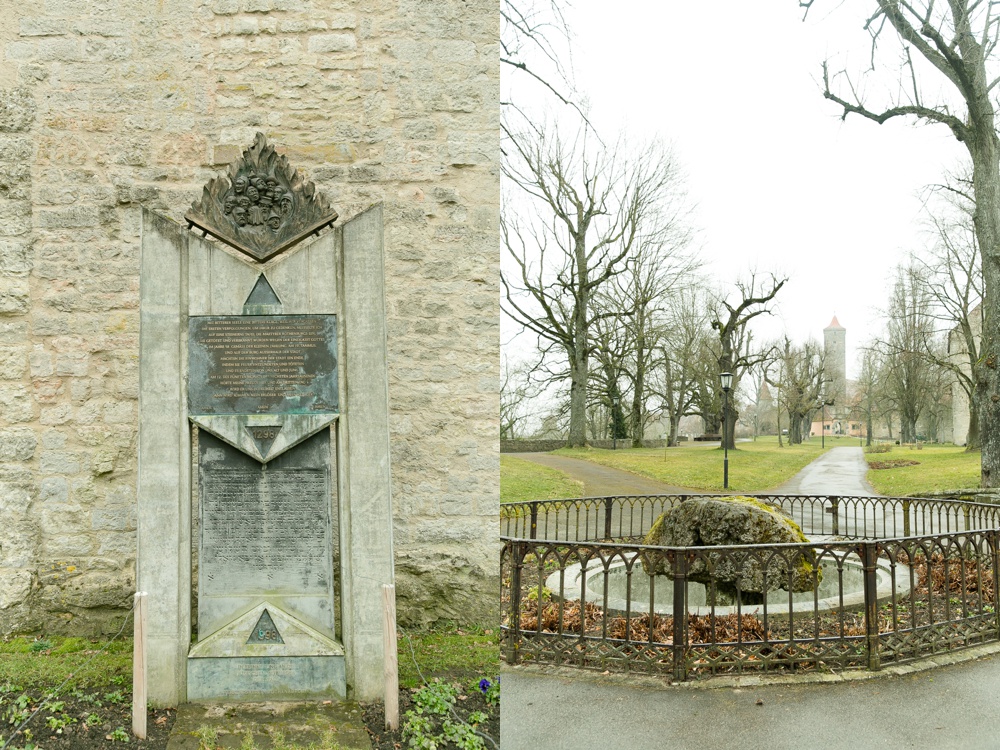
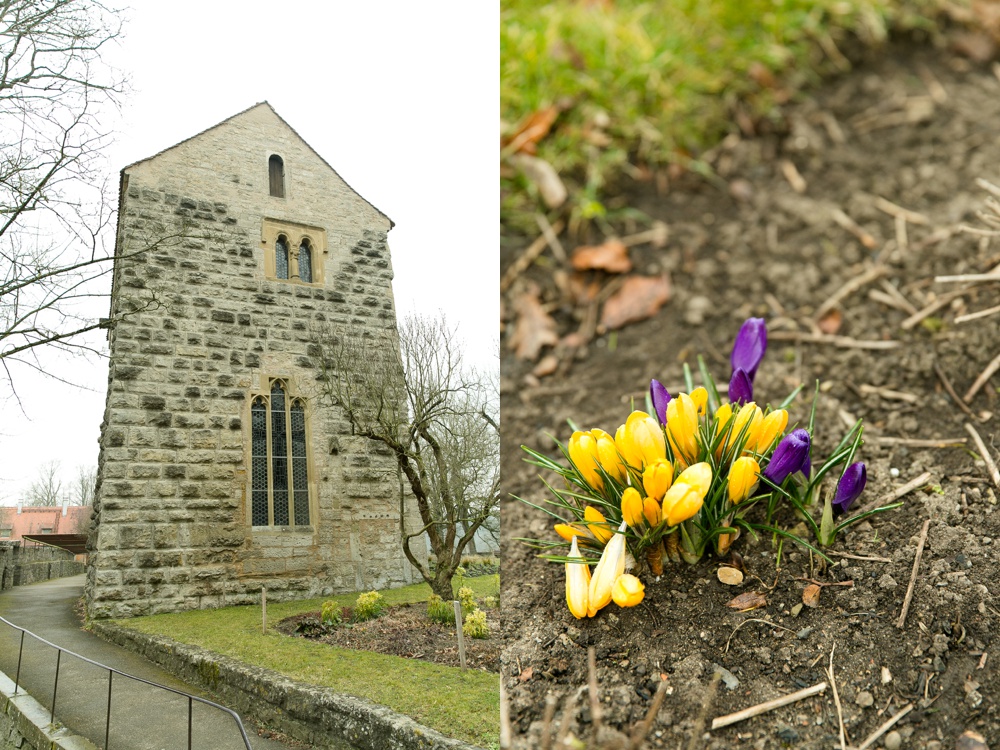
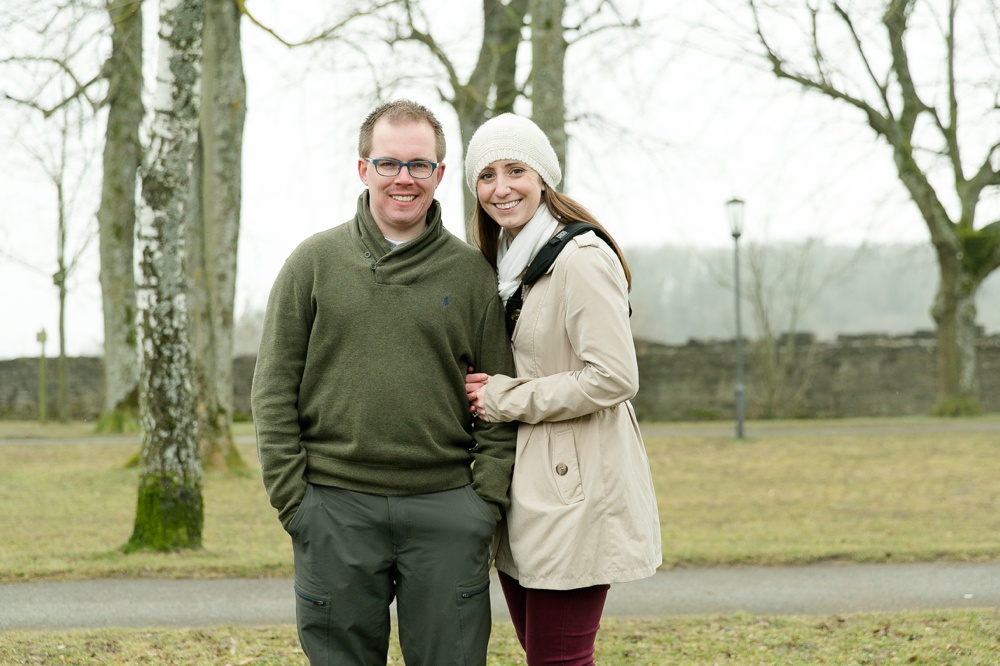
The west entrance to the city.
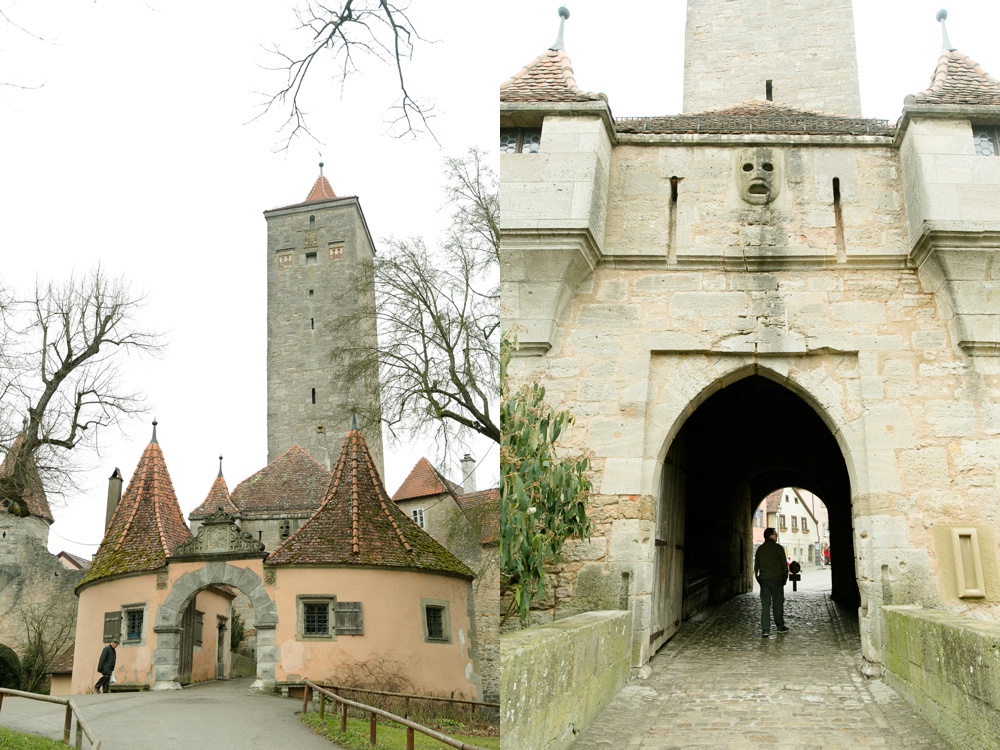
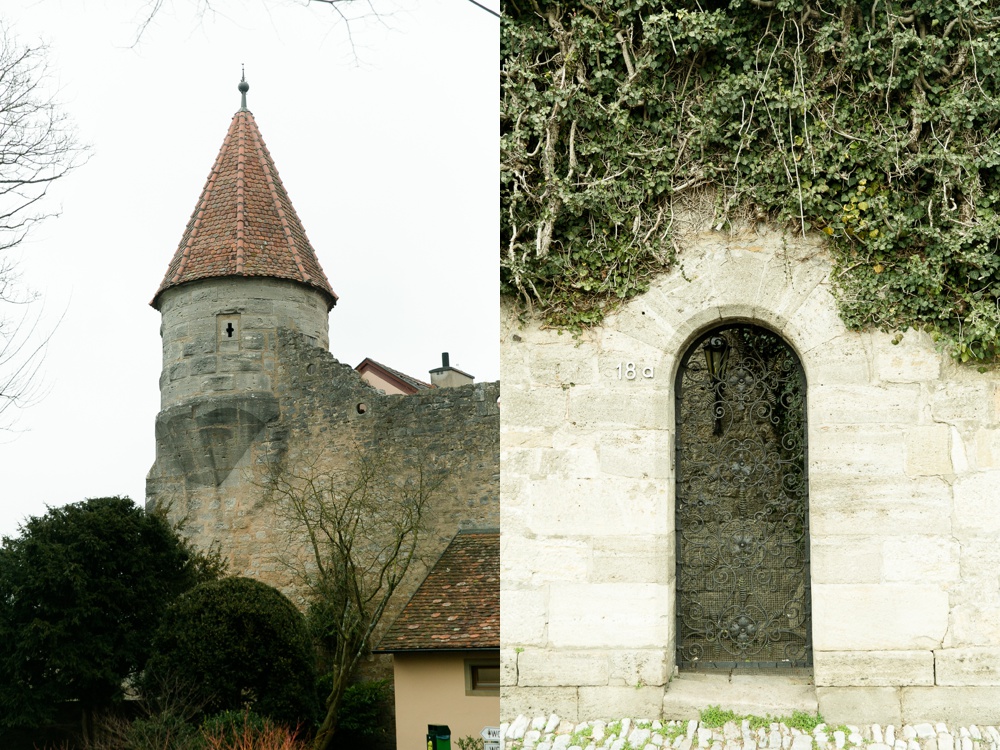
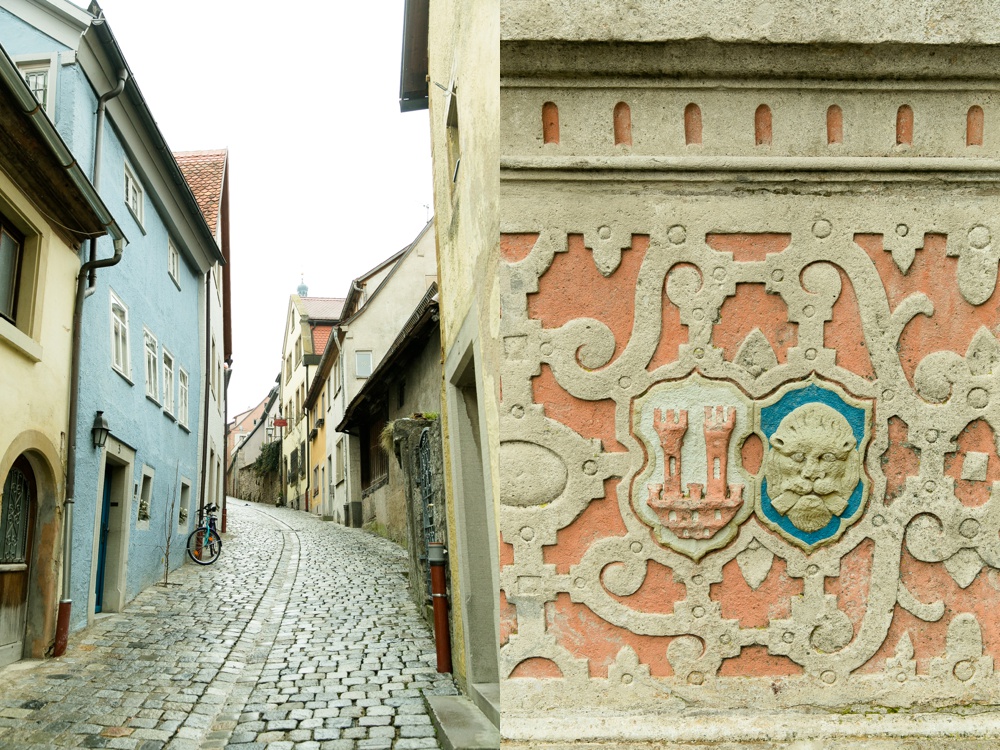
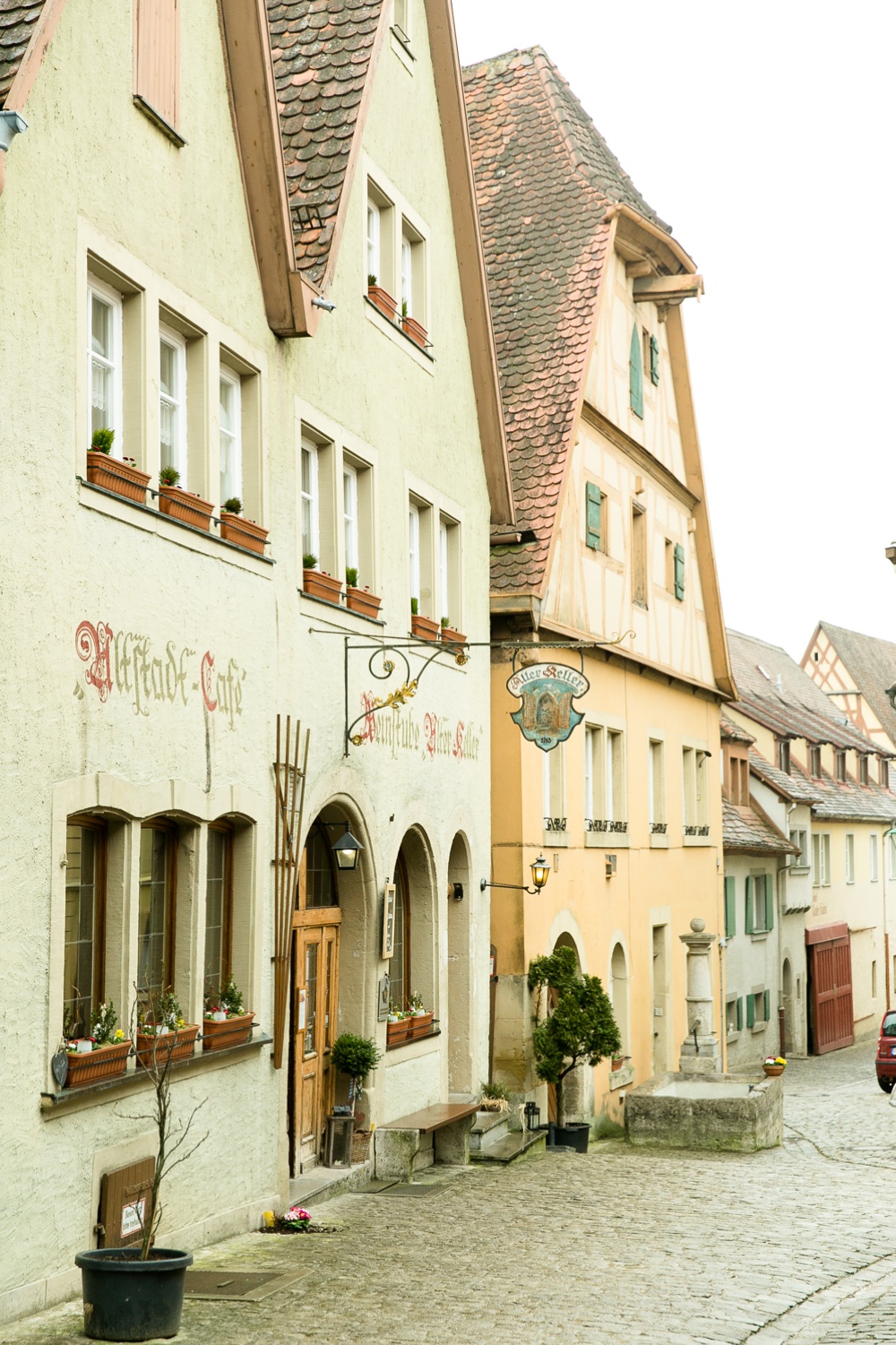
This plate of food might not look like that much to you, but it might be the best thing I ate in Germany. A cheese noodle dish, but not the type of noodle that I think of when I think of “Noodles”. It was more of a dumpling. I am sure it isn’t healthy for me, but who says I am here for the health?
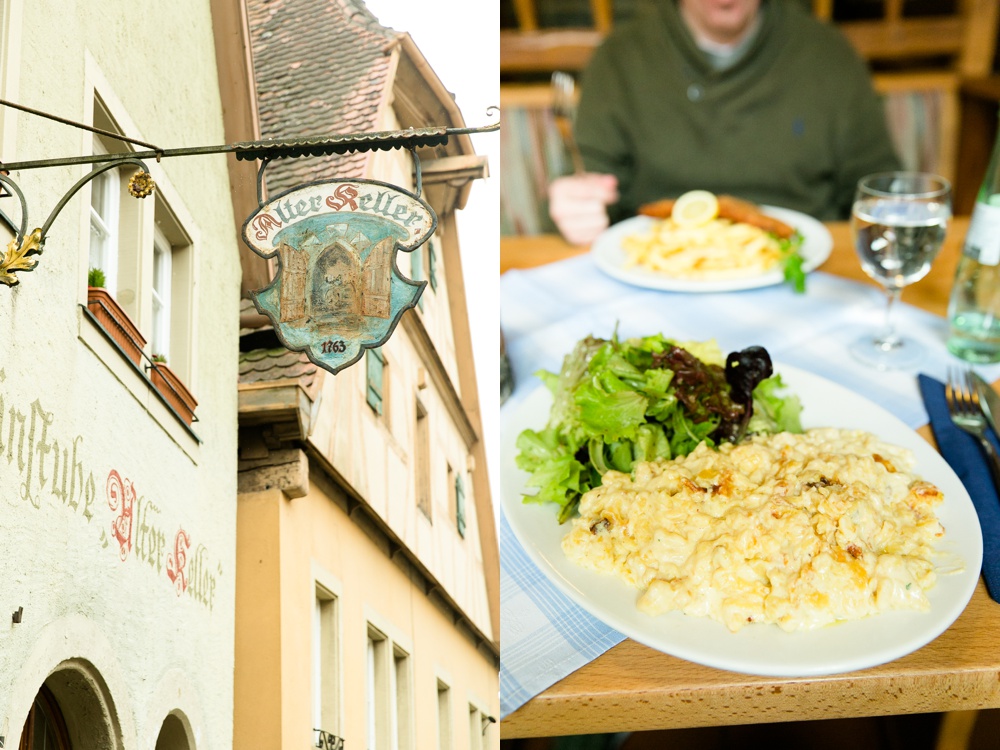
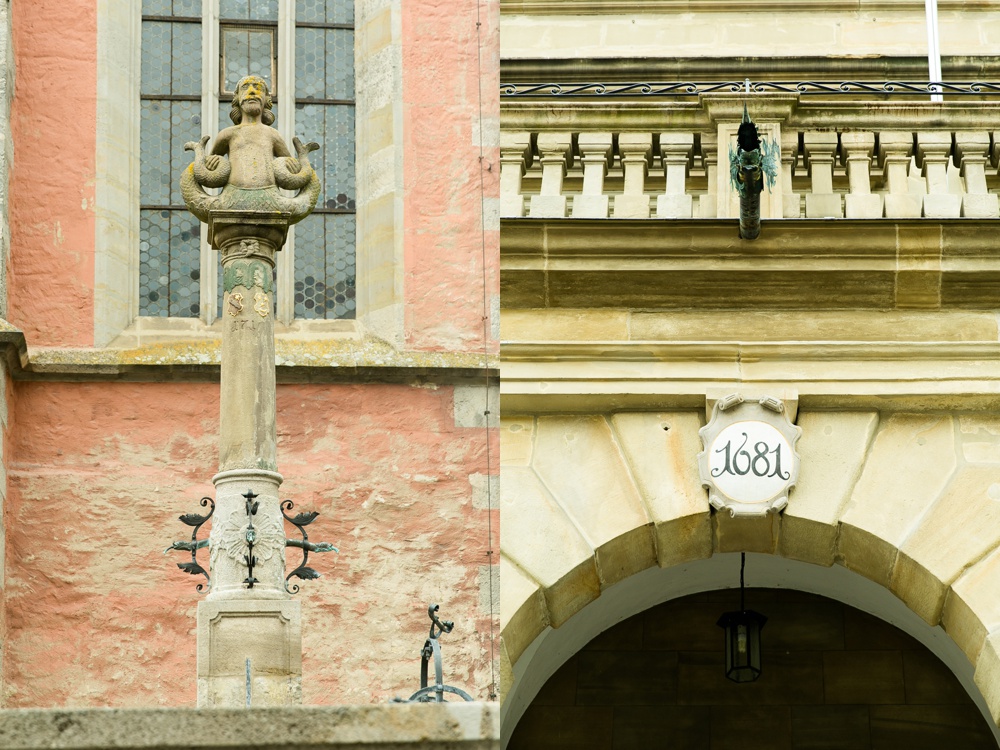
We have lived off of breads ever since we arrived. So many charming and delicious bakeries line the streets. I don’t know what I would do if I was gluten free. Crying would be involved.
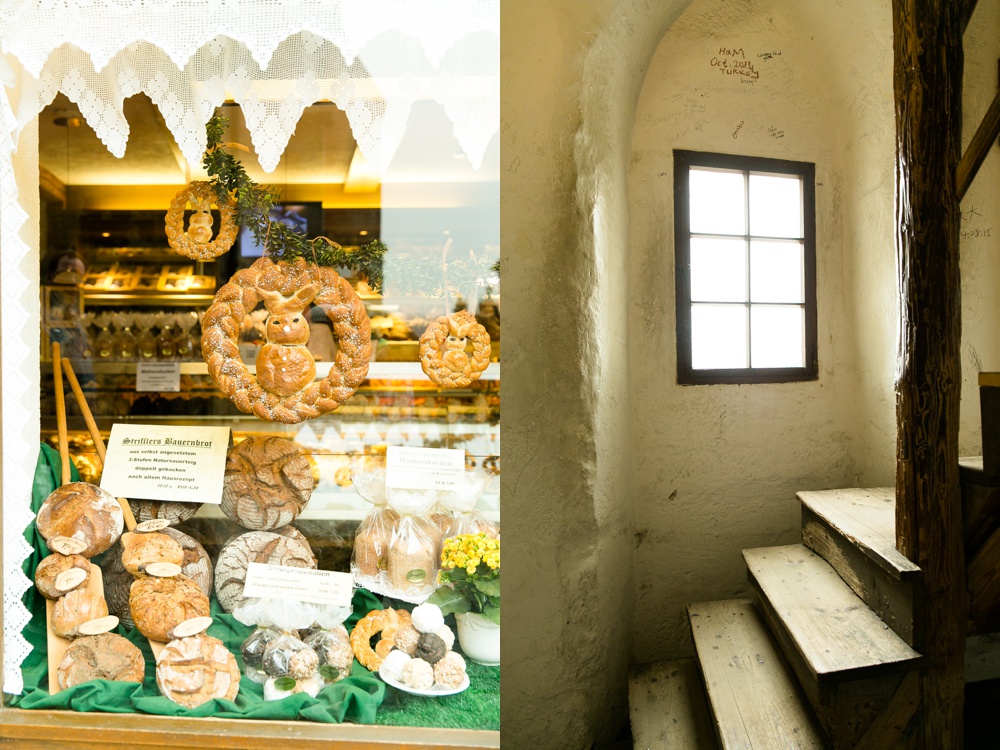
This is the town hall. As I mentioned before, the “New” part was added on in 1681. The bell tower in the back (the taller one) was open while we were there. The view was worth the leg workout climbing the narrow stairs to the top.
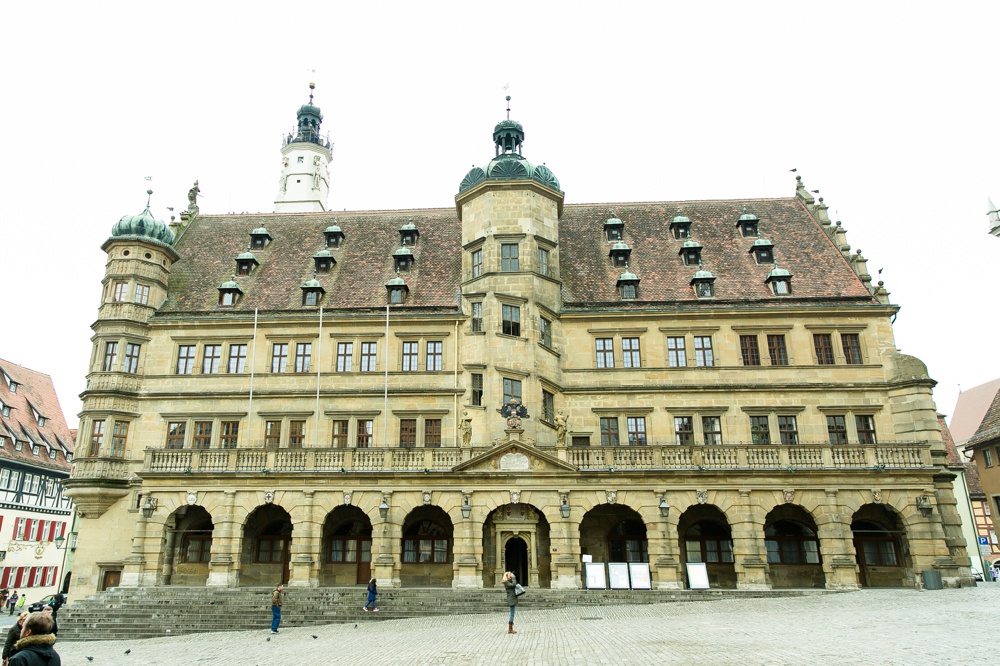
The image on the left is the doorway to the spiral staircase that leads to the bell tower.
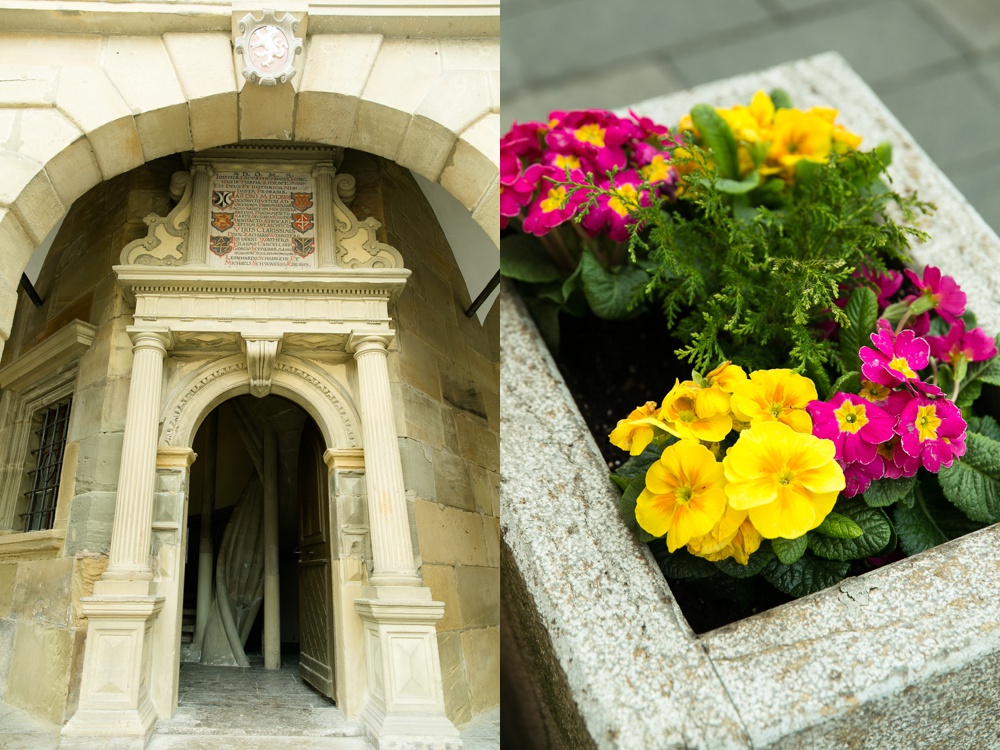
Half way up!
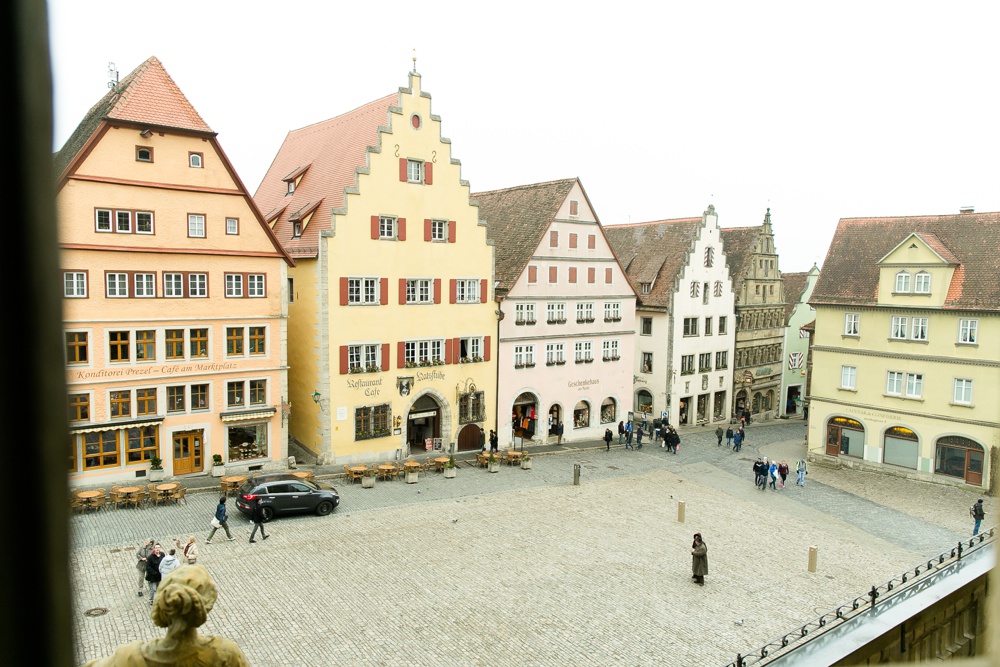
And from the top! We could see little red roofs all throughout the city.
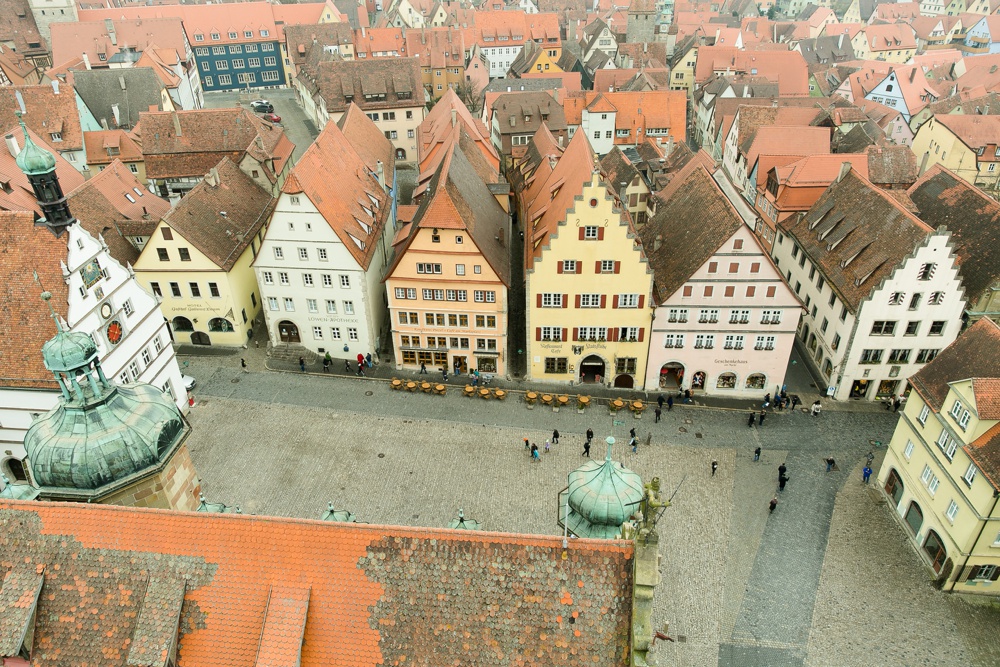
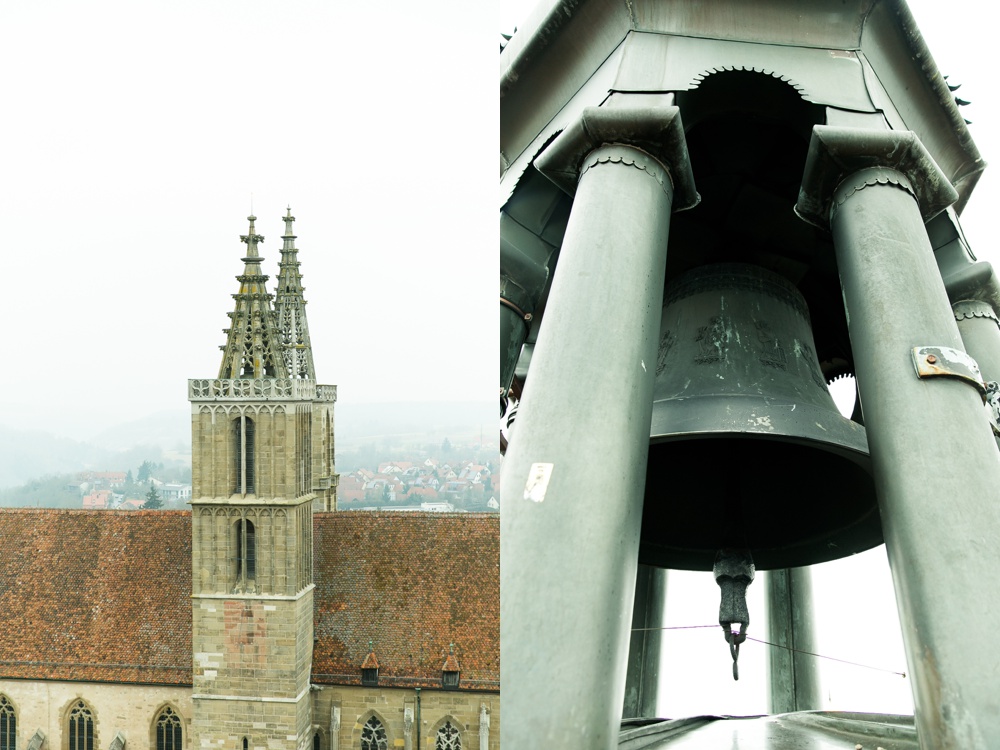
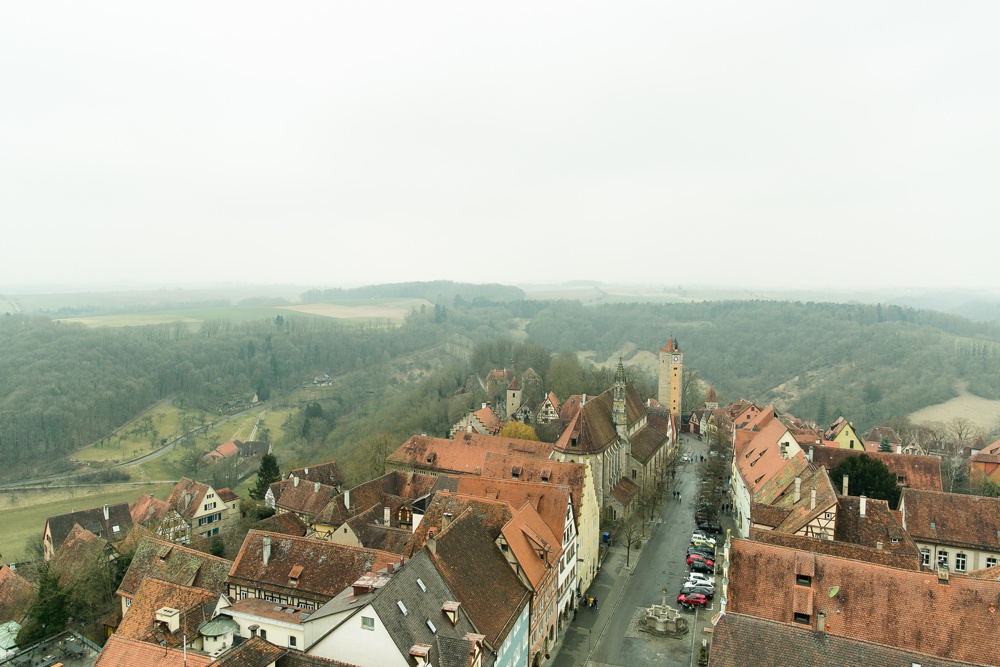
I loved seeing the red brick roofs.
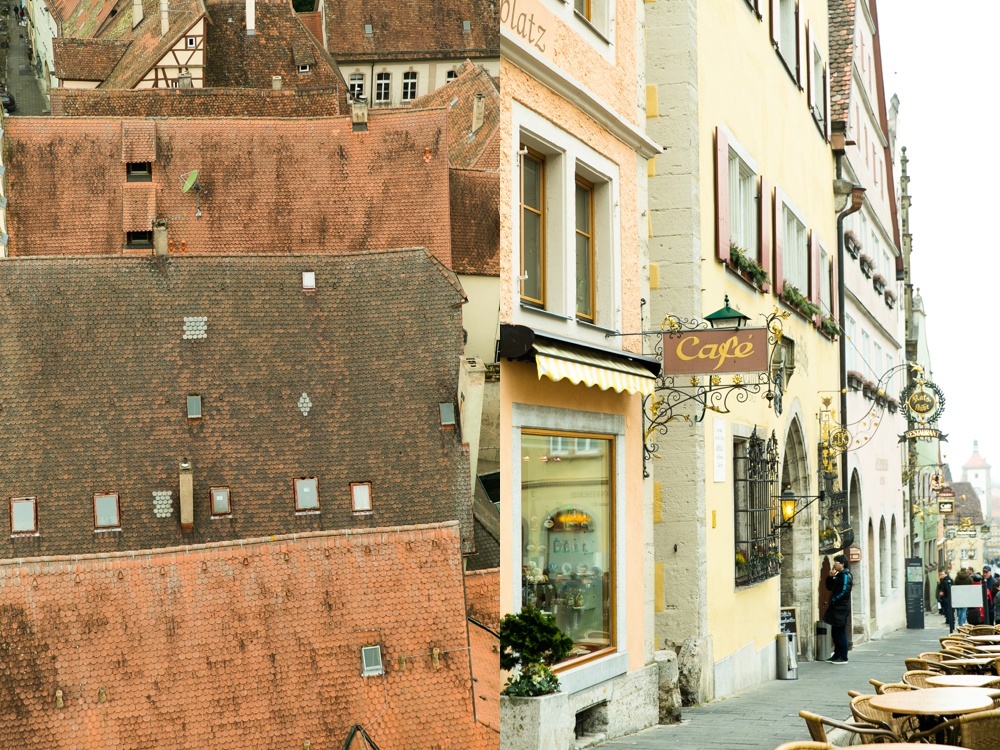
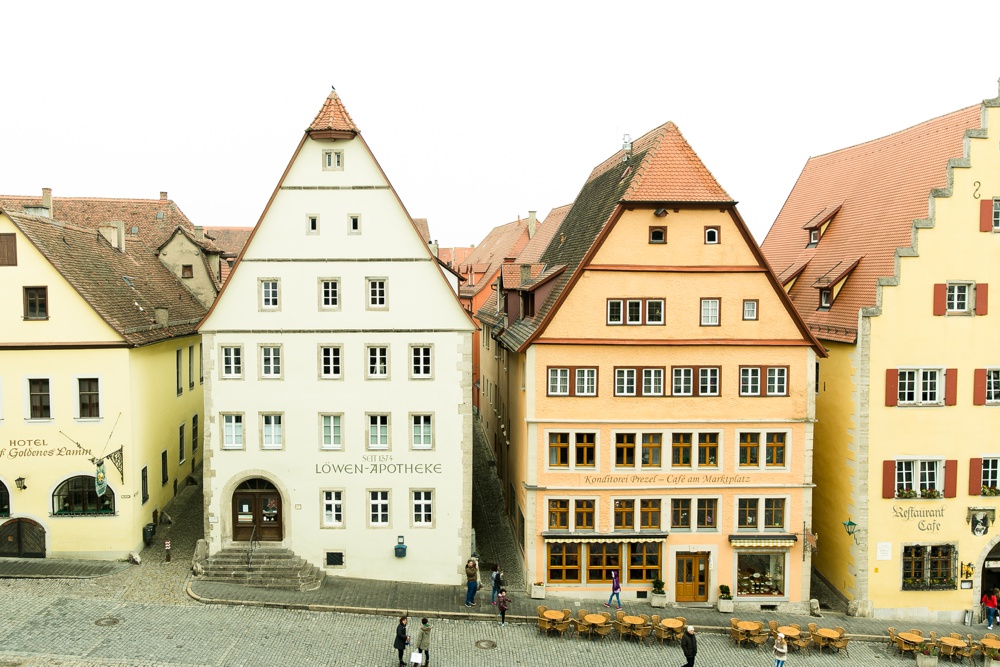
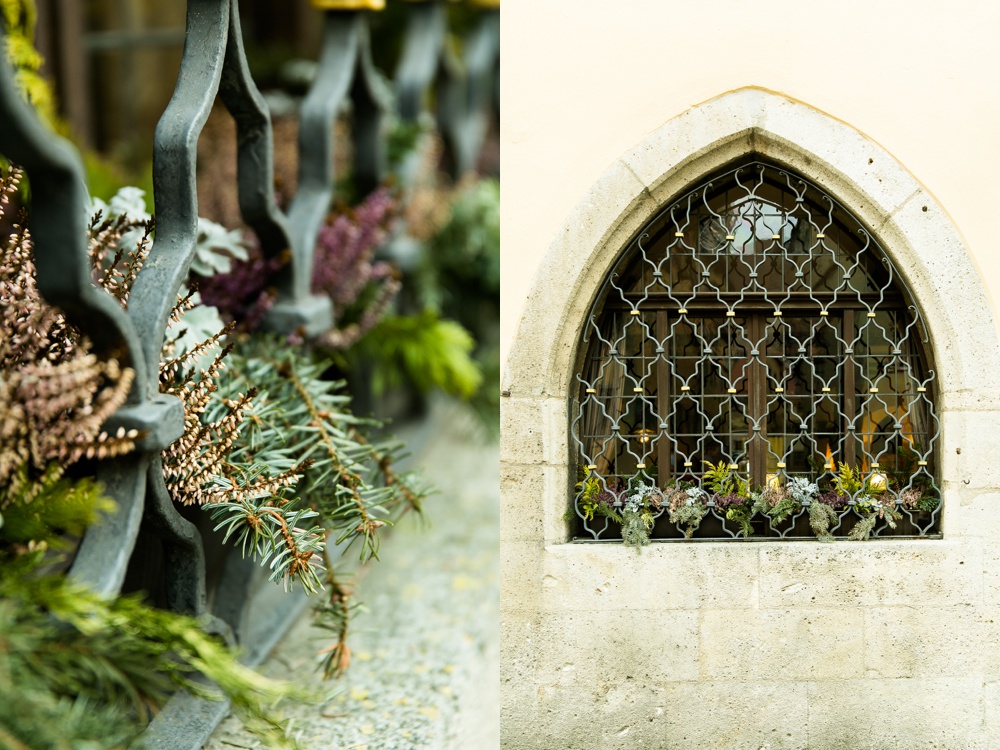
One of my favorites.
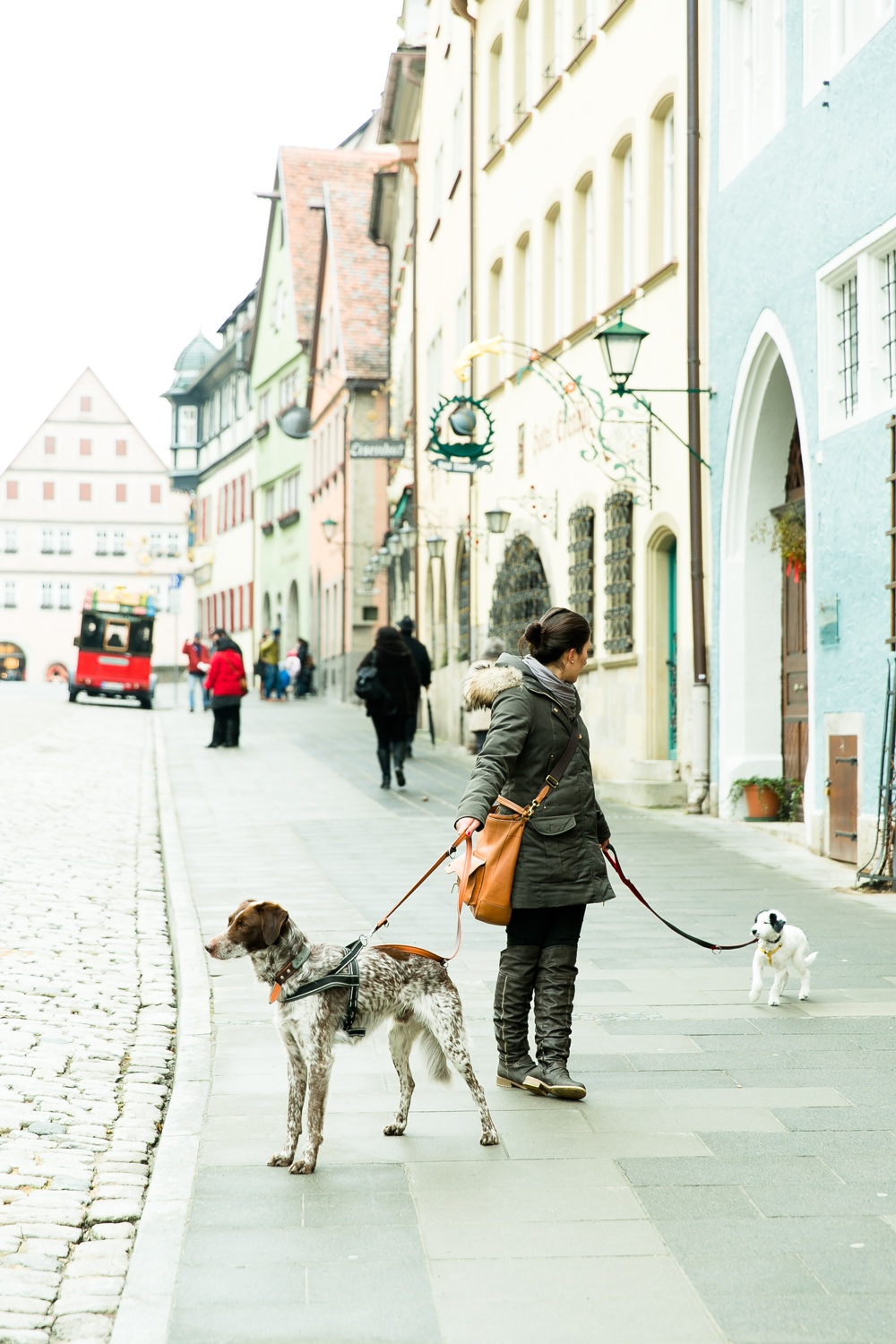
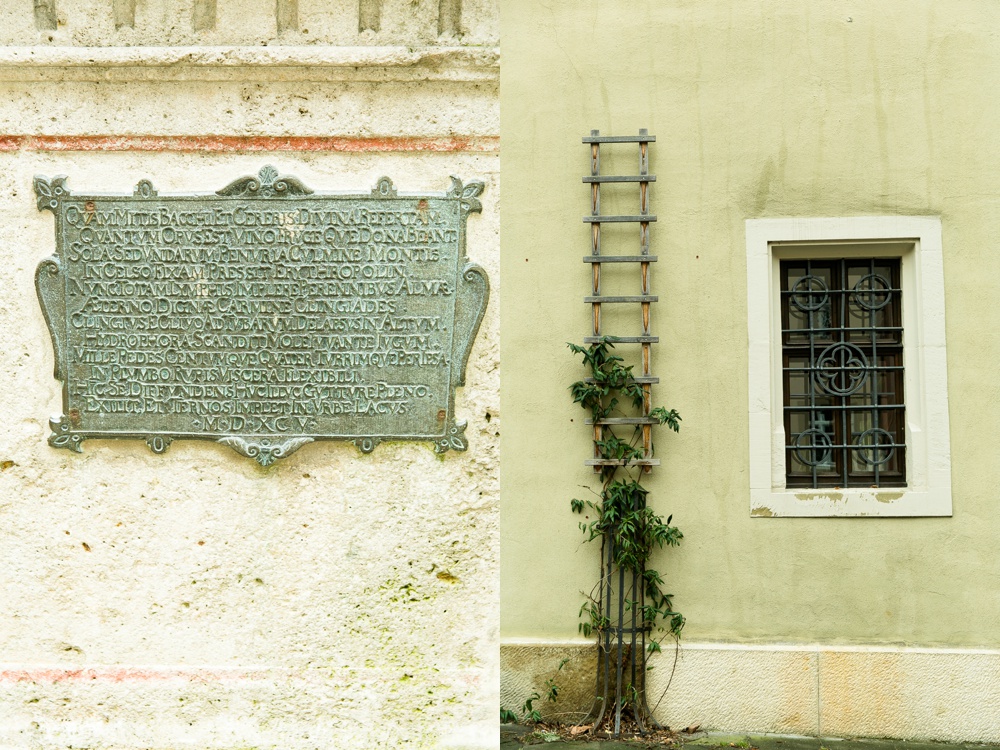
This church is not as elaborate as St. Jakob’s which is a few blocks away. This is an old Franciscan church, the oldest in town dating back to 1285. It sits in the “Herrngasse” which is where the richest merchants of the town lived. The buildings around it were the mansions of the walled town.
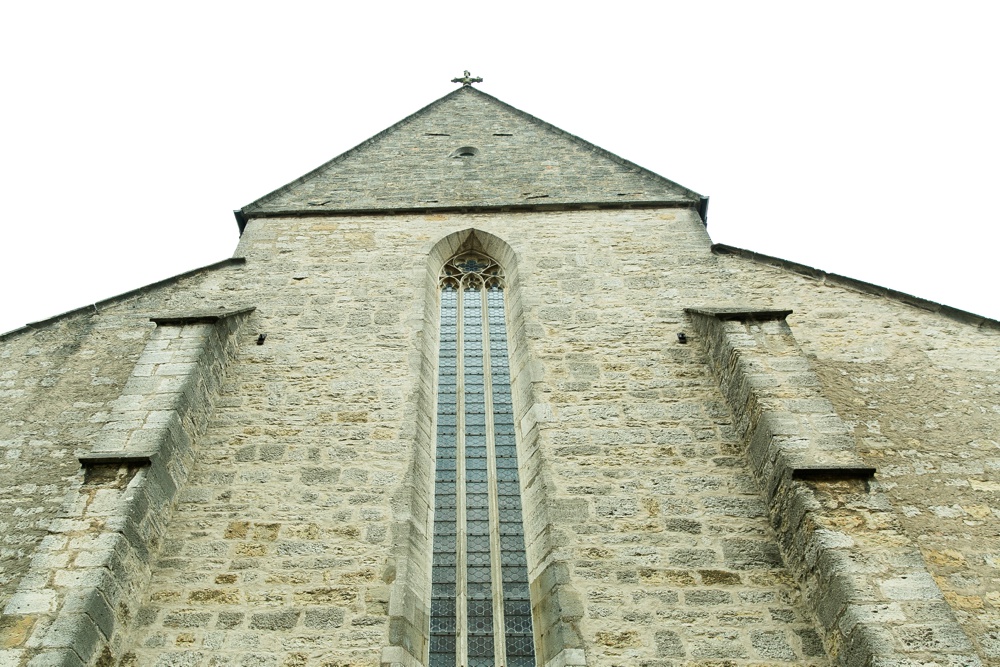
Just a little ways a way is St. Jakob’s. By far the largest building in town. The inside was “cleaned” in the 19th century of everything Baroque and refitted with Neo-gothic decoré. 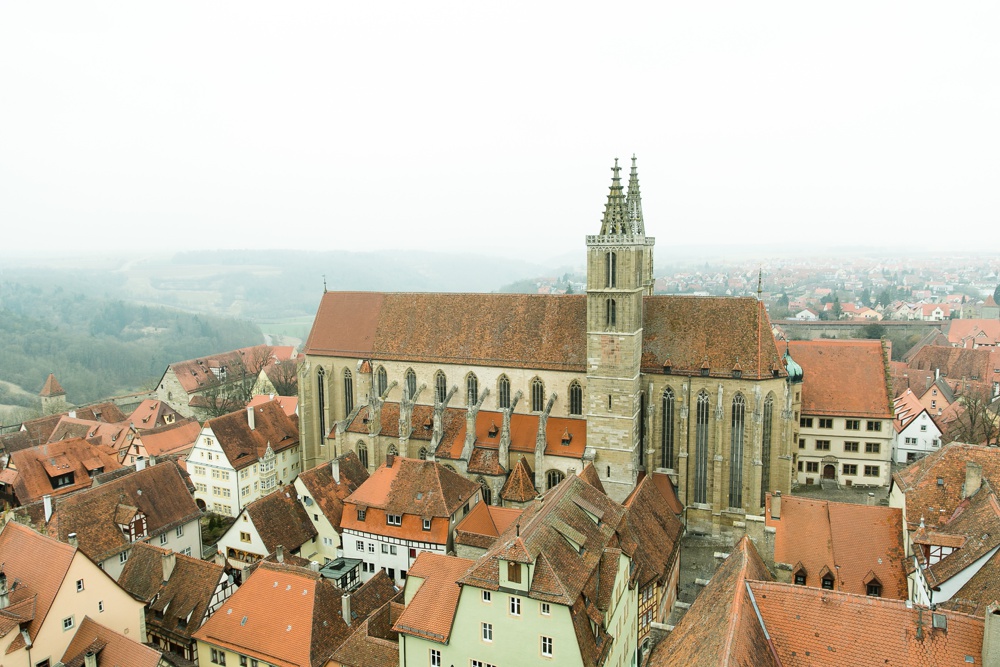
The statue of St. Jakob is outside the doors. He is most often seen with a scalloped seashell in hand as he was a traveler. Buildings that are marked with seashells are buildings that have associations with the church in one way or another.
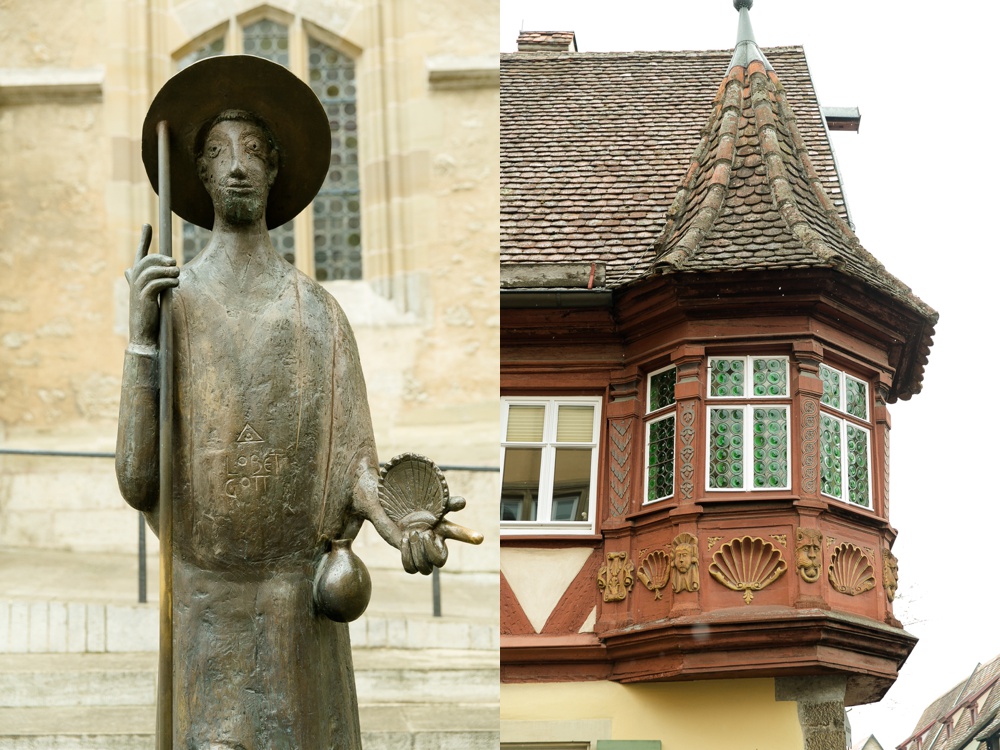
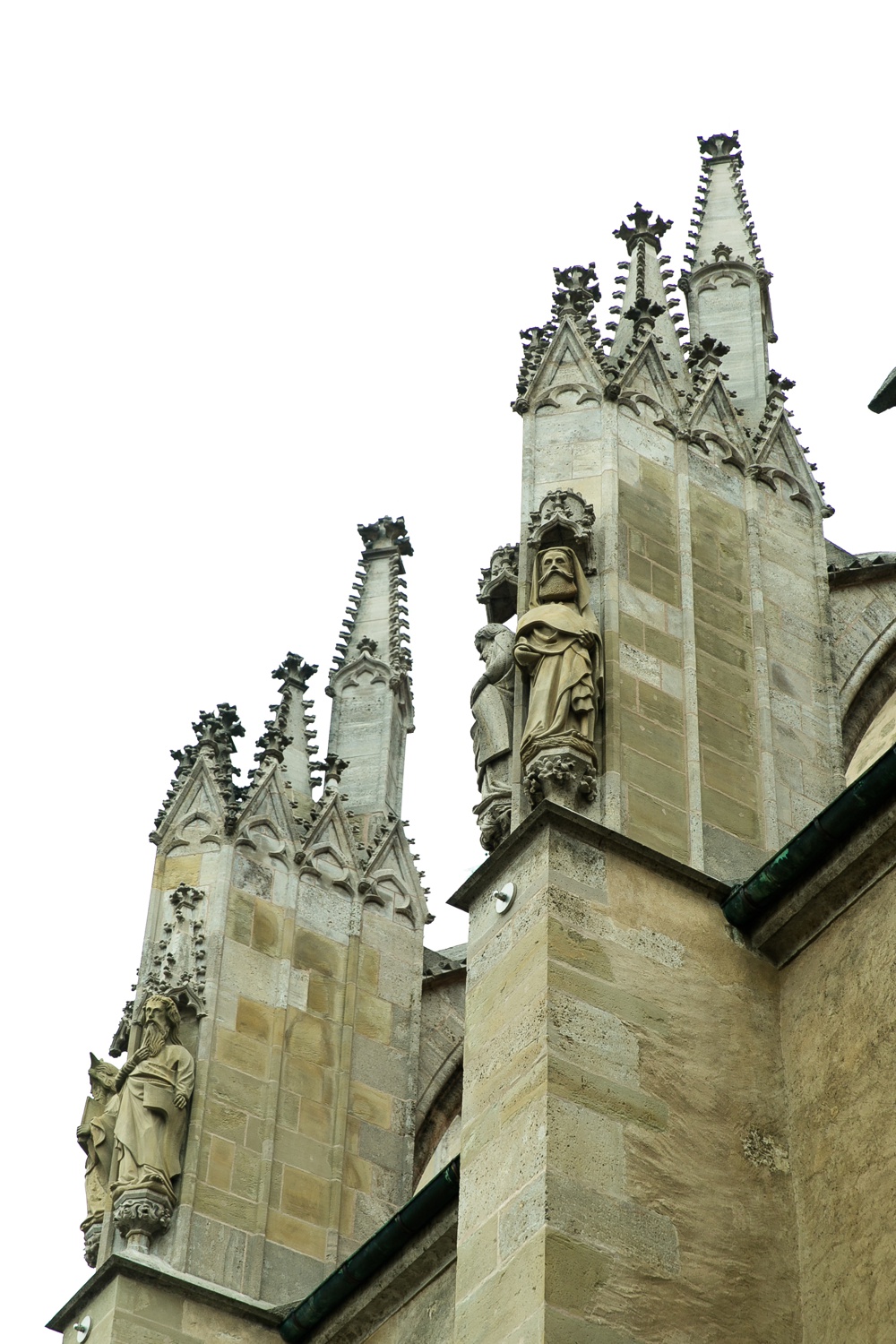
This church is known for the intricate wood carved alters by Tilman Riemenschneider. He was the “Michelangelo of german woodcarvers.
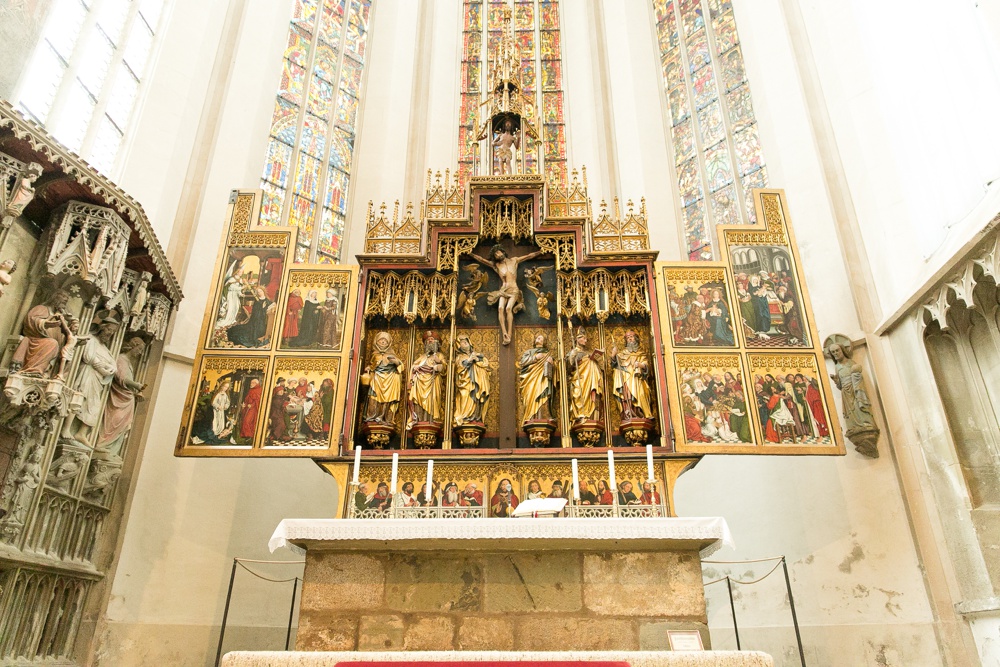
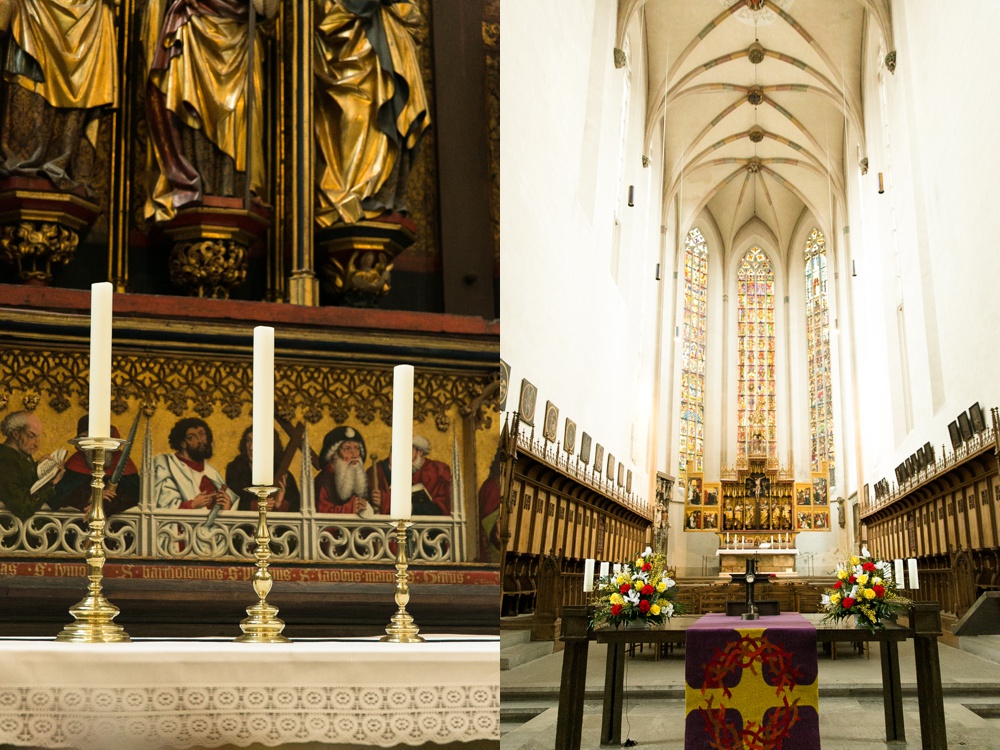
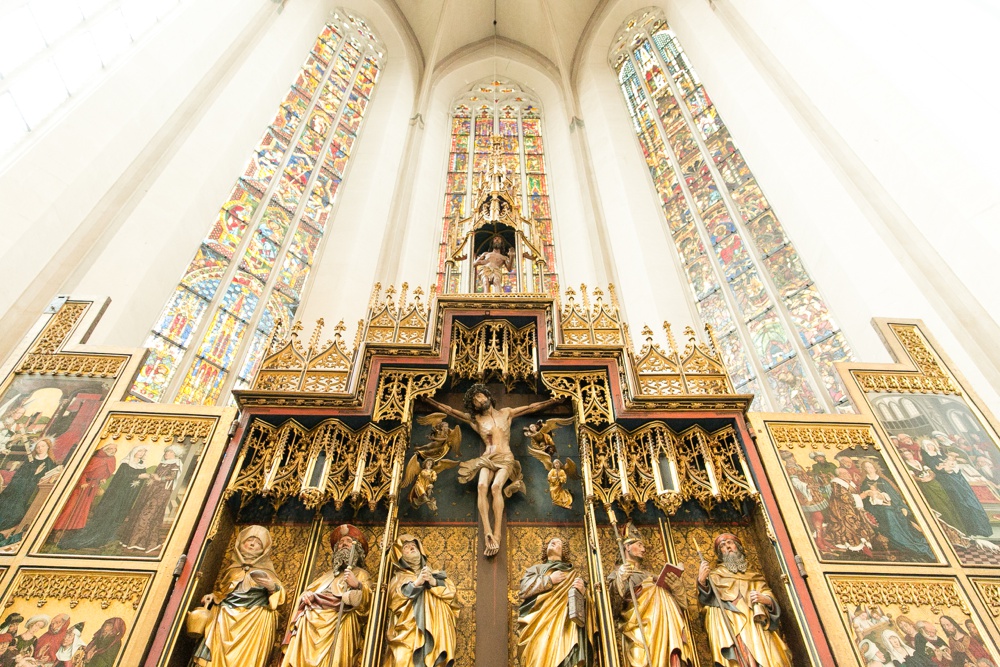
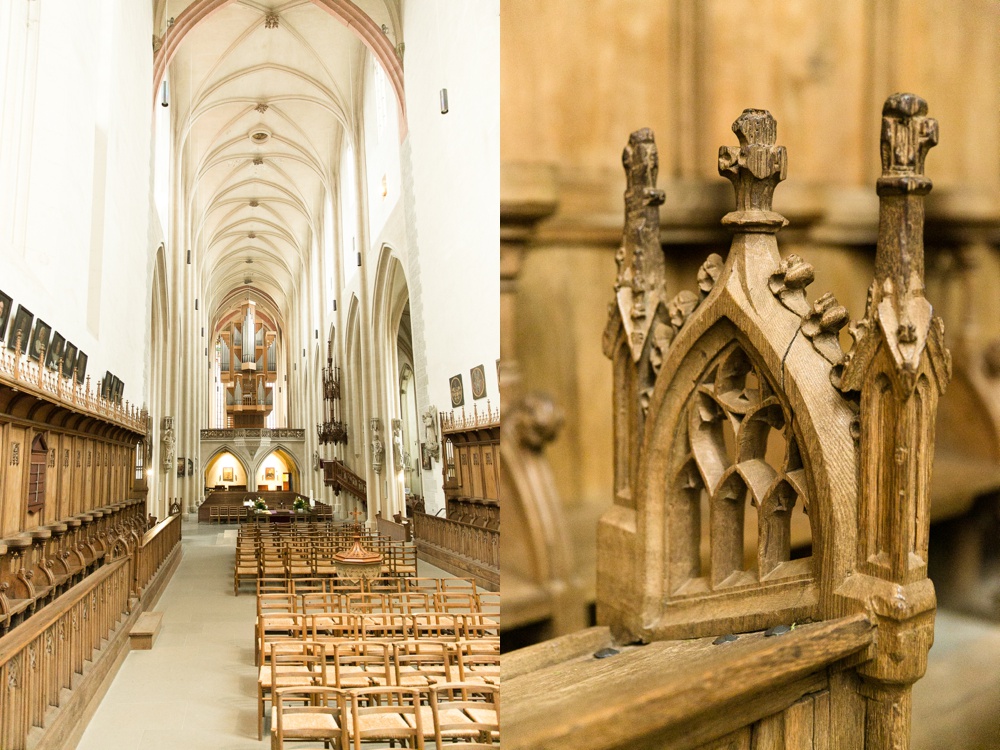
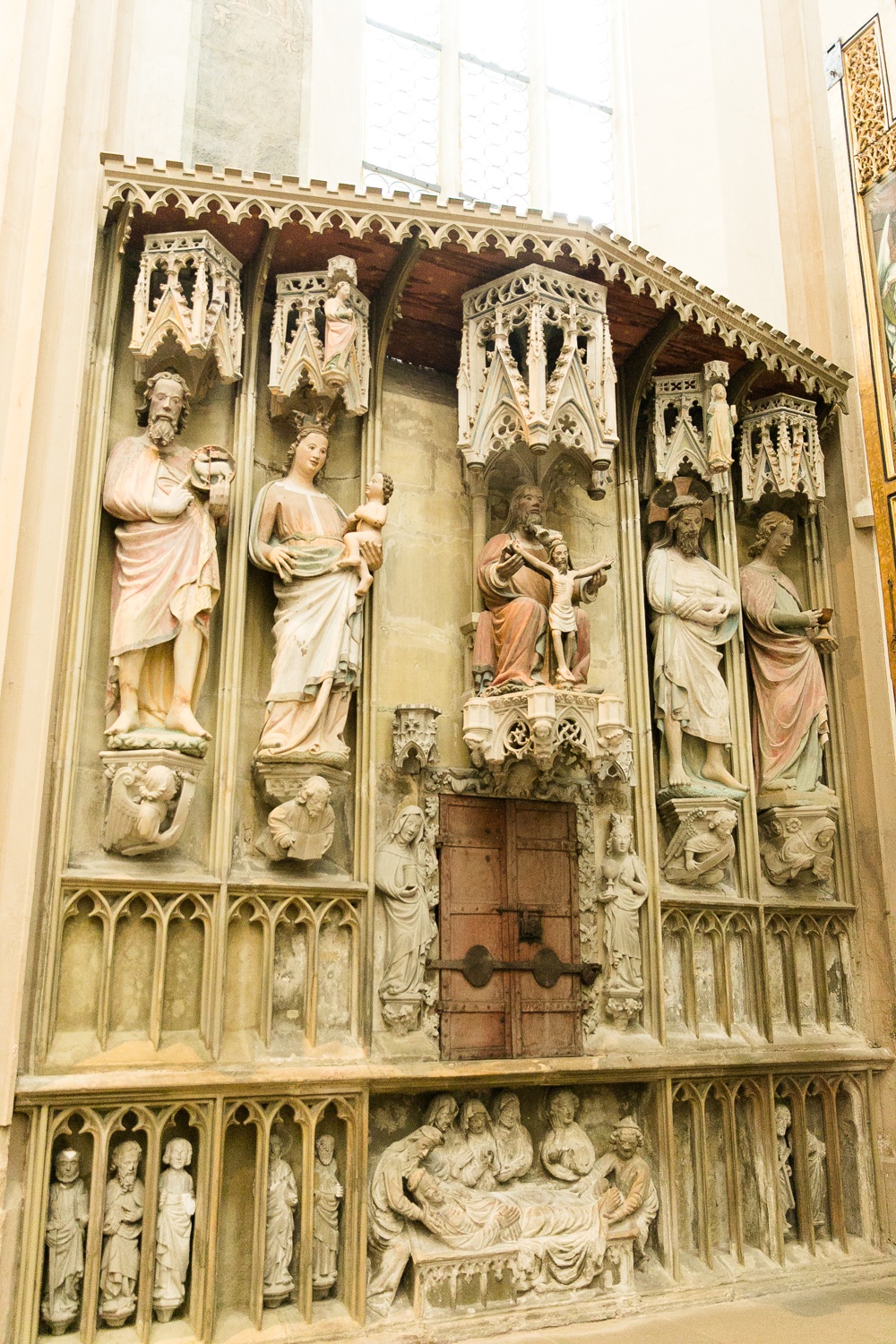
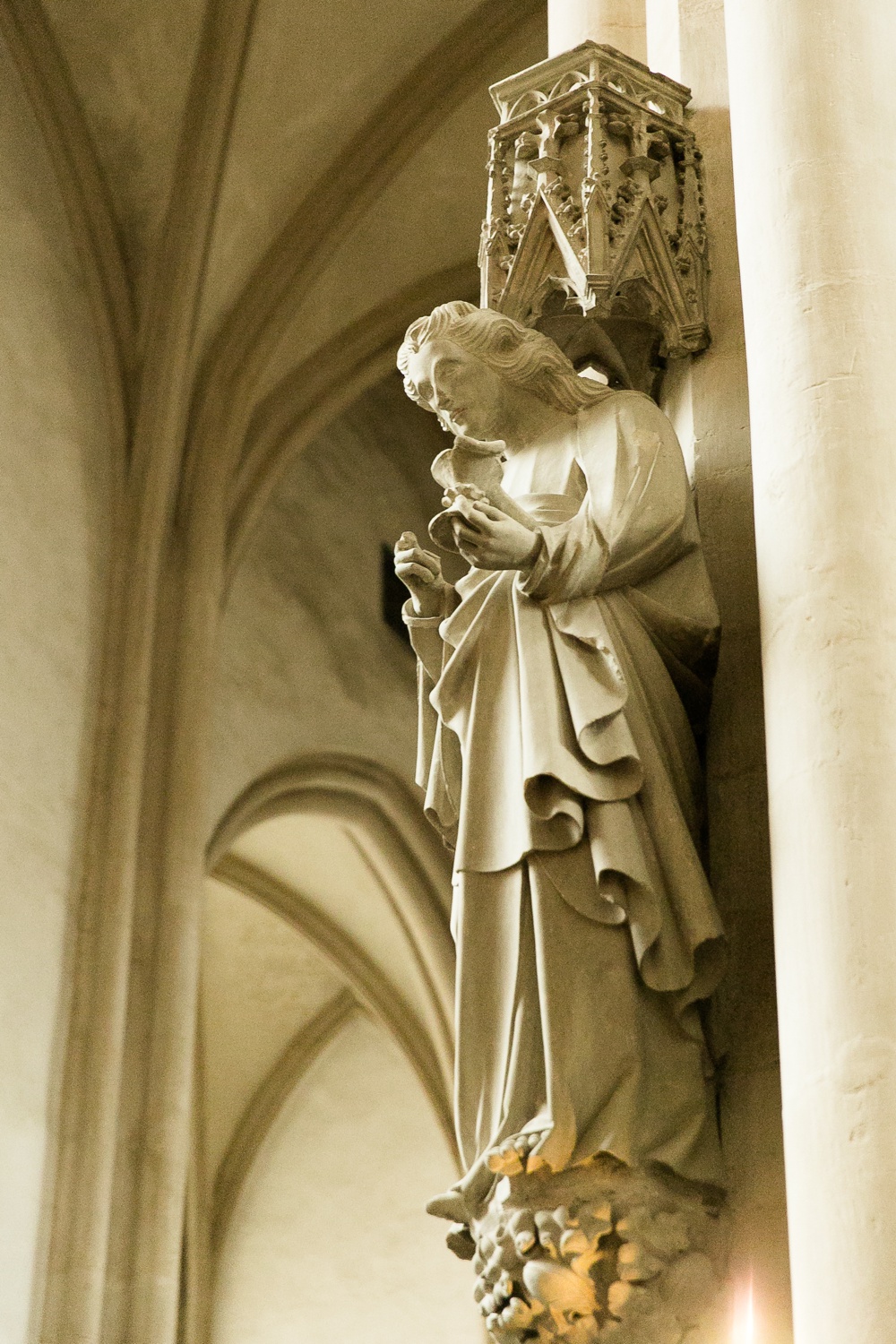
Leave a Reply
AUSTIN & HOUSTON TEXAS WEDDING PHOTOGRAPHER
0
comments